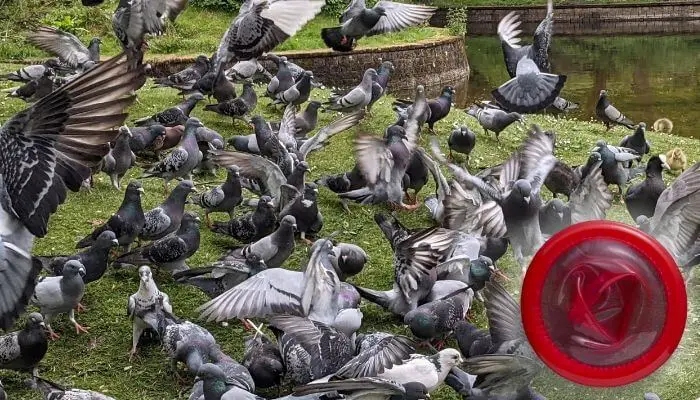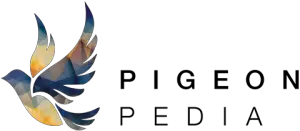Pigeons are prolific breeders.
If you’ve spent any time outdoors you will more than likely have noticed that pigeons seem to be everywhere!
There are estimated to be well over 400 million pigeons globally…and that is a very conservative estimate.

A pair of pigeons can produce over 12 squabs a year.
In big cities, where there is abundant food and plenty of places to nest, pigeons numbers can explode very quickly.
In fact 5 mating pairs could produce over 400 pigeons in only two years!
One of the most effective ways to limit pigeon population growth is to use pigeon birth control.
OvoControl
Innolytics LLC has developed a product called Ovocontrol which is a type of bird food that works as a contraceptive.
Pigeons that have eaten Ovocontrol will lay eggs that do not develop.
This is by far the most effective way of controlling the pigeon population.
While there are various ways of deterring pigeons, scaring away or even using poison or traps to kill them these are usually ineffective in the long term as pigeons will accelerate their breeding to offset lower flock numbers.
OvoControl causes pigeon eggs to become infertile.
Typically it is administered by an automatic feeder which is best placed on a rooftop, this sprinkles the food out every morning so that the pigeons get it into their system first thing for maximum effectiveness.
OvoControl state that you should expect to see a 50% reduction in pigeon population per year, and the ending flock should be between 5-10% of starting numbers.
How Does Pigeon Birth Control Work?
OvoControl is effective due to it’s use of the chemical nicarbazin.
It has been used since the 1950s to help combat potentially fatal coccidia infections in newborn chickens.
It was noticed that chickens that inadvertently consumed nicarbazin were prone to laying eggs that failed to hatch.
Nicarbazin is safe to use and it has been extensively reviewed by the FDA, EPA and other international regulators such as the EU’s EFSA and Japan’s MAFF.
Nicarbazin is a non-toxic compound that is environmentally benign, consuming it will not harm the pigeons besides making their eggs infertile.

This article was written by our qualified veterinarian Cristina.
This is part of our commitment to providing you with the most trustworthy veterinary advice for your pigeons.
Sources:
